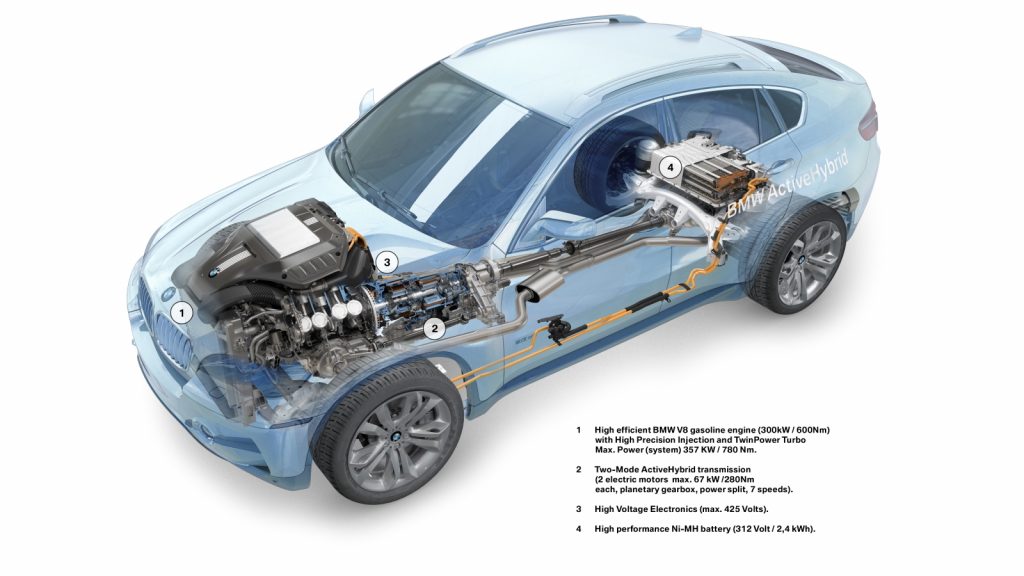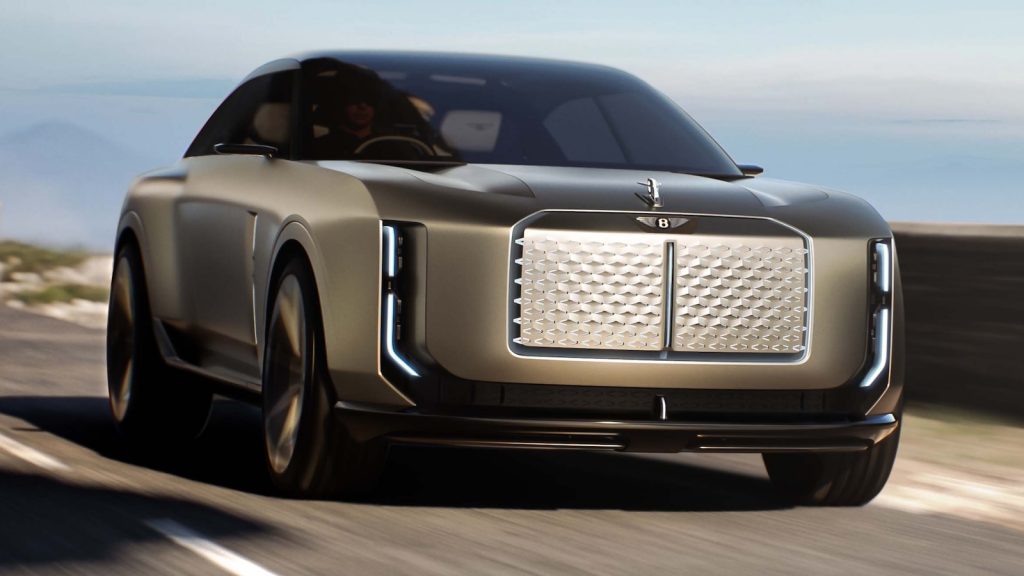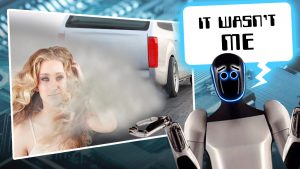The dam has broken. Automakers, especially in Europe, have gone from: EVs are a pipe dream, to gas-powered cars are dead, and now finally to: Gas-powered cars aren’t going away anytime soon. The cracks started to form last year, as companies started pushing back their all-EV plans by a few years. At least one automaker has pushed that back to eternity.
I do these little news roundups every day, and it always pleases me when The Morning Dump has a coherent theme that weaves through all the stories. Today, it’s electrification. Electrification isn’t going away, even if the transition to fully-electrified cars isn’t happening on a predictable timetable.
For BMW, that means one senior exec saying that the timetable is now “never” for combustion-powered vehicles. Bentley is following suit, mostly because it relies on Volkswagen platforms that’ll be shared with Porsche. Volvo, too, is invested in hybrids, although Jeep is killing at least one of its PHEV platforms before it even goes to market.
At least Jeep’s deciding not to make that car by choice. JLR is going to go a full month without production against its will.
‘ICE And Combustion Will Never Disappear. Never’ Says BMW Board Member

The quote above has been working its way around the web this weekend, and I thought it was worth approaching, both for what I think is being said and for the context I think is being missed.
From a macro perspective, it’s important to restate the obvious: Automakers were unrealistic with their electrification goals. Why? It’s probably a mix of things, and that mix will depend a lot on the specific automaker.
Right up front, I want to grant that automakers are made up of individual decision-makers, and my optimistic view is that most of those decision-makers want the planet to survive. Cars are a part of the global warming problem, but they’re not the only cause. I’d argue that we focus disproportionately on the cars themselves and not the infrastructure and building patterns that make us reliant on cars.
Urban planning is a hard, long process, and just swapping out gas-powered cars with electric ones is an easier pill for automakers to swallow than, say, trains. Just keep making cars, but make them electric. Get credit for saving the planet and rake in a lot of money.
There’s another reason. The massive valuation given to Tesla made it seem like EVs were imminent, and that anyone still making gas-powered cars would be a dinosaur by the end of the decade. Unfortunately, the adoption rate started leveling off. Most automakers led with expensive EVs, which was already a market saturated by Tesla. Automakers no longer got a stock boost by just saying they were going to electrify.
Regulation was the last piece, with many parts of the globe setting higher and higher standards that could only reasonably be achieved with an extremely high percentage of electric cars.
With the market turning, regulation being revised/reversed, and the insane valuations disappearing, automakers are realizing very late that something has to change.
That’s the background for this quote, from an Autocar India article:
With governments retreating from ambitious 2035 all-EV targets and demand patterns varying sharply across regions, the German automaker is pursuing a dual-path strategy that keeps internal combustion engines (ICE) firmly in play while investing heavily in pure EVs.
“ICE and combustion will never disappear. Never,” said Jochen Goller, member of the board of management of BMW AG for customer, brands and sales, underscoring the company’s belief that electrification will coexist with conventional drivetrains in the foreseeable future.
Goller’s emphatic comment frames BMW’s strategy: Instead of betting on a single technology to define the 2030s, BMW is investing in multiple ones but simplified into a leaner, more scalable structure.
The context is that he’s saying this in India. Electric cars require a lot of new infrastructure to be built, and it’s not clear that the economics justify that kind of infrastructure everywhere. Where there are developing nations that use a lot of hydroelectric energy, like Nepal, EV adoption may be quick. In other areas, where even keeping the lights on is an issue, it’s likely to be slower.
BMW’s plan is not to get rid of gas-powered cars, though BMW has made a huge investment in EVs. BMW’s plan is instead to offer the widest range of powertrains possible, fitted appropriately to each market. Compared to VW, at least, the Bavarian automaker has been a little better about being flexible.
The reality is that there’s no one-size-fits-all solution for everyone, and car execs should have known that all along. Forever is a mighty long time, just ask Prince (or Big K.R.I.T.). It’s possible that either through the sheer force of will or some kind of technological advancement that everything will become an EV in my lifetime.
It’s also possible that what will happen first is the electrification of everything. This means almost everything becomes a hybrid, a PHEV, or an EREV.
Bentley Can’t Go Full EV Either

As a part of the larger Volkswagen Group, Bentley shares platforms with Audi and Porsche. This means that as those companies walk back their EV plans, so must Bentley.
Per the UK version of Autocar:
Bentley CEO Frank-Steffen Walliser told Autocar that as the three brands share platforms, drivetrains and other key components, decisions and investments in Stuttgart and Ingolstadt have had direct consequences in Crewe.
[…]
As such, pure-petrol successors to the Bentayga, Continental GT and Flying Spur are set to remain part of the line-up, reflecting demand from key markets such as the Middle East and North America. They were originally expected to be offered only with PHEV or EV powertrains.
Backing the decision, Walliser said: “There is a dip in demand for luxury electric vehicles, and customer demand is not yet strong enough to support an all-electric strategy. The luxury market is a lot different today than when we announced Beyond100.
“Electrification is still our goal, but we need to take our customers with us.”
I like that last line. Also, I still think Walliser should be the next Porsche CEO.
Jeep Kills The Gladiator PHEV, Volvo Plans To Build Hybrid XC90 In The United States

There’s a way to look at the PHEV Stellantis vehicles as compliance cars, built primarily to avoid having to pay carbon penalties and take advantage of tax credits (and to be sold in CARB-aligned states). While they’re good vehicles if they’re always plugged in, it’s not clear how often they are plugged in, and there have been lingering questions about quality.
The Jeep Gladiator is also, in its own way, a compliance vehicle, in that it complied with the requirement that every large automaker offer some sort of mid-sized pickup truck. I like the Gladiator, but low sales volumes already make the fitting of a PHEV system a questionable move.
Now that Congress and the White House have effectively killed fuel economy penalties by setting them to $0, it seems entirely unnecessary. Stellantis, for that reason or another, seems to agree that it’s not necessary, according to a statement given to The Detroit News:
“As customers’ propulsion preferences for battery-electric trucks continue to evolve, Stellantis is reassessing its product strategy and will no longer include an electrified Gladiator variant in the Jeep lineup,” said a company statement sent by spokesperson Andy Bowman.
Bad news for the suppliers, but I’m not expecting a lot of customers are going to care. I am generally supportive of PHEVs, it’s just that they need to have more than 10-20 miles of range to be effective.
Volvo, for its part, will reportedly build an XC90 hybrid in South Carolina at the end of this decade. While Volvo didn’t specifically say it’ll be an XC90, that’s the best guess at the moment, and it seems to conform to the company’s statement that it’s “designed to meet the specific demands of the U.S. market.”
JLR Can’t Build Anything For At Least Another Week

Jaguar is still planning to go all-EV so far as I can tell, though Land Rover definitely plans to keep building combustion-powered cars well into the foreseeable future. For the moment, no one at JLR is building anything as the JLR Cyberdisaster is now stretching production delays until the end of the month, as Automotive News Europe reports:
Jaguar Land Rover is extending the closure of its factories until Oct. 1 following a cyberattack that has left its operations paralyzed and smaller suppliers struggling.
“We have made this decision to give clarity for the coming week as we build the timeline for the phased restart of our operations and continue our investigation,” JLR said on Sept. 23.
JLR’s factories in Britain produce about 1,000 cars a day and the automaker is said to be losing tens of millions of pounds, with many of its 33,000 staff told to stay at home.
It’s possible that, even if JLR gets production started next week, disruptions could last through the end of the year.
What I’m Listening To While Writing TMD
For no reason at all, The White Stripes have been in my head all week. Specifically, “Girl, You Have No Faith In Medicine.”
Acetaminophen, you see the medicine
Oh girl
The Big Question
Which major, non-EV automaker will be the first to actually go 100% BEV?
Top photo: BMW









“…my optimistic view is that most of those decision-makers want the planet to survive…”
That’s probably a tad too optimistic.
The same goes for a lot of people.
See the comments for evidence.
Saab
Yup…gasoline forever!